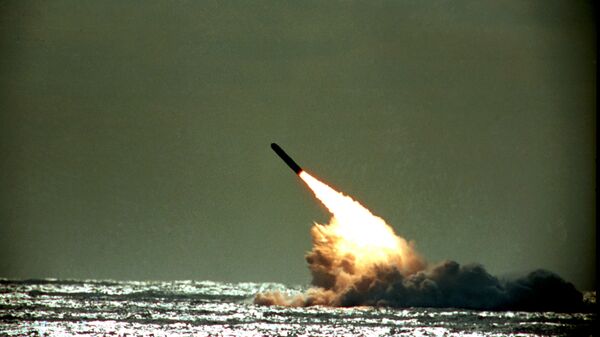"Back in October last year, Russia handed over to the United States a draft joint statement on the inadmissibility of nuclear war and the strengthening of strategic stability. The lack of agreement on its adoption speaks very eloquently about the US intentions", he stated, commenting on the vice chairman of the US Joint Chiefs of Staff statements on the alleged presence of the Russian threat.
The diplomat added that the Russian nuclear threat for the United States, mentioned by Gen. Paul J. Selva, was imaginary.
Kozhin stressed that such statements by US officials as the one made by Selva were intended to justify the expansion of the Pentagon's nuclear arsenal.
"We can state with concern that the US nuclear plans mirror those of the 1960s when it perceived a ‘limited nuclear war’ as acceptable and winnable", Artyom Kozhin said.
Kozhin further suggested this was a sign that the United States wanted to abandon a ban on nuclear weapons testing. Washington signed up to a comprehensive ban in 1996 but never ratified it.
The statement comes after vice chairman of the US Joint Chiefs of Staff Gen. Paul J. Selva said, as cited by US media on 18 June that low-yield nuclear weapons should be placed on Trident submarines to deter Russia and to "fill a hole that exists in the potential escalation ladder that we know is part of Russian doctrine". The move is reportedly suggested in response to what the Russian Foreign Ministry called a "mythic threat" of Russia launching a nuclear strike at the United States.


